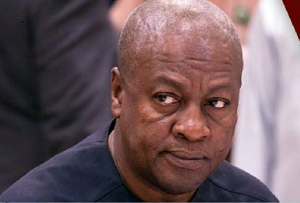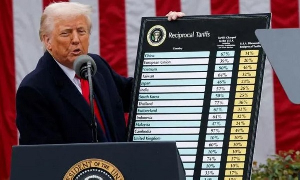In the quest to transform Ghana's economic landscape, John Mahama's 24-Hour Economy initiative stands as a pivotal strategy aimed at unlocking unprecedented opportunities for youth employment.
However, for this ambitious vision to materialise, robust government support and well-crafted policies are essential. Central to the successful implementation of the 24-Hour Economy is the government's willingness to foster a conducive environment for businesses to thrive.
This involves streamlining bureaucratic processes, reducing regulatory burdens, and providing financial incentives to both local and foreign investors.
By creating a business-friendly atmosphere, the government can encourage entrepreneurship, particularly among the youth, who are often brimming with innovative ideas but lack the necessary resources to bring them to fruition.
Moreover, targeted policies that support vocational training and skill development will be crucial. The government must prioritise collaborations with educational institutions to ensure that the youth are equipped with the relevant skills needed in a 24-hour economy.
This could involve the establishment of specialised training programmes in sectors that operate around the clock, such as hospitality, logistics, and digital services.
By aligning educational outcomes with market demands, young Ghanaians can seamlessly transition into the workforce, ready to contribute to the economy.
Additionally, the government should explore public-private partnerships (PPPs) to leverage the expertise and resources of private entities in driving the 24-Hour Economy forward.
These partnerships can facilitate infrastructure development, enhance service delivery, and create job opportunities. For instance, investing in reliable public transportation and energy solutions will empower businesses to operate efficiently, ultimately leading to job creation.
Lastly, the need for comprehensive policies that address youth entrepreneurship cannot be overstated. Providing access to low-interest loans, grants, and mentorship programmes can inspire young individuals to start their own businesses and participate actively in the economy.
By backing innovative startups and small enterprises, the government can stimulate job creation, reduce unemployment rates, and foster a culture of self-reliance among the youth.
In summary, government support and strategic policies will be the backbone of John Mahama's 24-Hour Economy. By prioritising business-friendly reforms, investing in skill development, fostering public-private partnerships, and promoting youth entrepreneurship, the government can pave the way for a thriving economy that empowers the next generation of Ghanaians.
As the vision unfolds, the potential for youth employment growth and economic prosperity in Ghana remains bright.
Opinions of Wednesday, 20 November 2024
Columnist: Anthony Obeng Afrane















